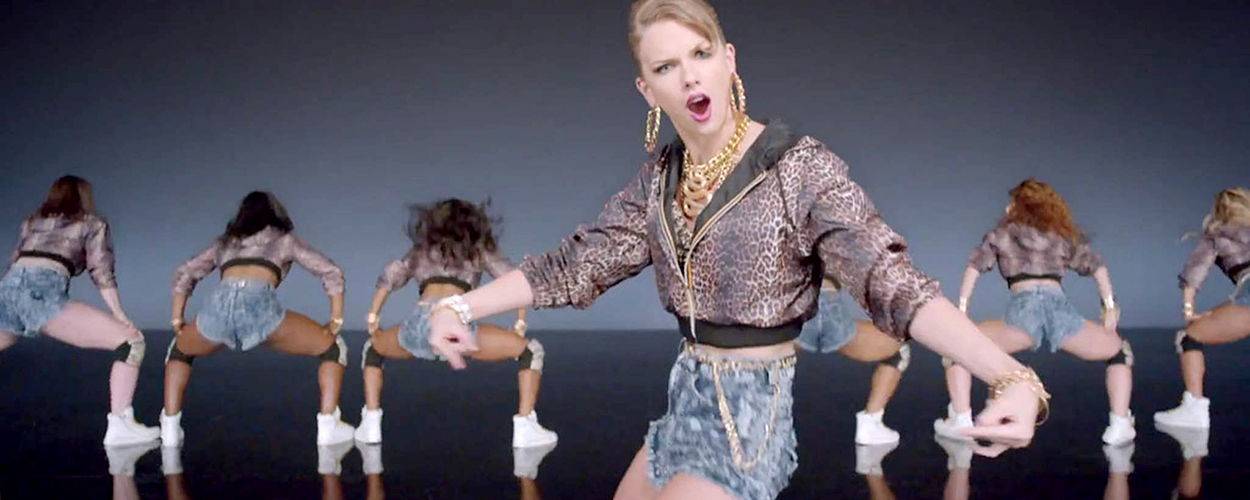This website uses cookies so that we can provide you with the best user experience possible. Cookie information is stored in your browser and performs functions such as recognising you when you return to our website and helping our team to understand which sections of the website you find most interesting and useful.
Artist News Business News Labels & Publishers Legal
Taylor Swift says Shake It Off song-theft accusers don’t even have the right to sue
By Chris Cooke | Published on Wednesday 5 October 2022

As the song theft legal battle in relation to Taylor Swift’s ‘Shake It Off’ rumbles on, at a court hearing yesterday attention turned to the argument that the songwriters suing Swift don’t even have the legal right to pursue the litigation.
In this particular song-theft case, songwriters Sean Hall and Nathan Butler accuse Swift of ripping off their 2001 song ‘Playas Gon Play’ when she wrote her 2014 hit. The claim is mainly based on the similarities between the two songs’ respective key lines, with the 2001 track having the line “the playas gon play/them haters gonna hate”, while ‘Shake It Off’ famously includes the lyric “the players gonna play, play, play, play, play/and the haters gonna hate, hate, hate, hate, hate”.
Swift’s legal team have been trying very hard to get the case dismissed, mainly on the basis that the notion of players playing and haters hating is far too generic for lyrics based on said notion to be protected by copyright in isolation. More recently the Swift side has also gone to great lengths to explain how she couldn’t possibly have heard ‘Playas Gon Play’ before writing ‘Shake It Off’, because she never watched MTV and was mainly into country music when the former was released.
The judge overseeing the case, Michael W Fitzgerald, did actually initially dismiss it, agreeing that lyrics about players playing and haters hating were too banal to enjoy copyright protection. But that decision was overturned on appeal, and ever since Fitzgerald has seemed very reluctant indeed to rule on the key copyright arguments at the heart of the dispute, reckoning that the appeals court ruling means those matters have to go to a jury.
Still, that hasn’t stopped Team Swift trying to persuade Fitzgerald to kick the case out for a second time. And one line of argument that hasn’t got so much attention previously is the claim that Hall and Butler never had the right to go legal.
That argument is based on the respective publishing deals Hall and Butler did back in the day in relation to ‘Playas Gon Play’. The Swift side argues that, while Hall and Butler are still beneficiaries of the song, the rights in it are ultimately controlled by their publishers, which means only those publishers are able to sue if they believe the ‘Playas Gon Play’ copyright has been infringed.
And who are the publishers in control of the rights in ‘Playas Gon Play’? Well, according to the MLC database, the publishing divisions of Sony and Universal. And do you know who also appears among the list of publishers for ‘Shake It Off’? Yeah, Sony and Universal. And do you know who are among the list of corporate defendants on the ‘Shake It Off’ song-theft lawsuit? Yeah, Sony and Universal.
According to Law360, a legal rep for Swift – Peter Anderson – brought all this up in a court hearing yesterday. He claimed that when Hall and Butler did their publishing deals, they signed away their rights to file a lawsuit in relation to ‘Playas Gon Play’. And, he alleged, when the two writers approached their publishers about negotiating back that right, said publishers refused. Presumably for obvious reasons.
Anderson also told the court that Hall and Butler’s publishing contracts were long-form and therefore comprehensive, and were “unambiguous” on what rights the two writers retained in relation to their songs – basically to share in future income.
Fitzgerald noted that there isn’t a huge amount of case law – ie previous rulings in similar disputes – to offer guidance on what to do in circumstances like this.
Anderson responded: “I have never in all my experience in this court or in New York or anywhere else heard of a case where a plaintiff songwriter who entered into a co-publishing agreement with these types of provisions turns around and sues over the objections and without the consent of the music publisher that owns those rights. And so sometimes there’s a lack of law because no one does it”.
It remains to be seen whether this or any other technicality can help the Swift side avoid this dispute going to a high profile jury trial.





